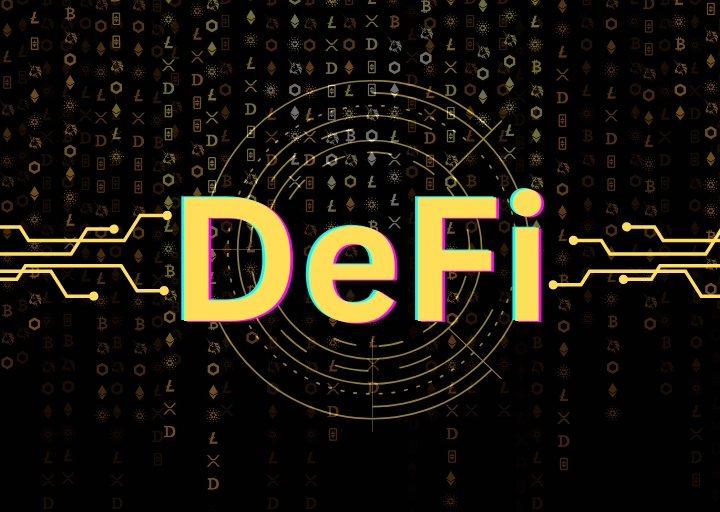Top 12 Use Cases of DeFi
With fresh and creative approaches to traditional financial services, Decentralized Finance (DeFi) is revolutionizing the financial industry. According to estimates, the DeFi market will grow at a constant annual rate (CAGR 2023-2027) of 19.60%, with an expected $34.7 billion in total sales in 2027. Dependent on blockchain technology, DeFi gives users a trustless, open, and permissionless financial ecosystem without the need for intermediaries, but making financial services available to users in bulk. This blog elaborates on a few of the most powerful DeFi applications shaping the financial universe across the globe.
Table of Contents:
1. KYT, AML & CFT Compliance
2. Decentralized Crowdfunding
3. Asset Management
4. Decentralized Exchanges (DEXs)
5. Decentralized Identity
6. Decentralized Autonomous Organization (DAO)
7. Insurance
8. Decentralized Stablecoins
9. Risk Analysis & Prevention
10. Yield Farming
11. Margin Trading
12. Decentralized Prediction Markets
13. To Conclude

KYT, AML & CFT Compliance
Providing security, integrity, and regulatory adherence, Know Your Transaction (KYT), Anti-Money Laundering (AML), and Countering the Financing of Terrorism (CFT) are some of the key use cases of DeFi.
KYT is all about monitoring and analyzing cryptocurrency transactions to identify anomalous patterns, whereas AML regulations inhibit unlawful financial activity through the verification of user identities and real-time monitoring of transactions. DeFi applications utilize address clustering methods, decentralized identity technologies, and sanctions filtering to implement such measures effectively.
CFT compliance, however, refers to the detection and prevention of terrorist financing risk through the gathering of enhanced due diligence on risky users. Part of DeFi platforms works alongside regulatory agencies to share intelligence with the aim of countering the funding of terror. Through this integration of such compliance frameworks, DeFi platforms can build higher regulatory trust levels and provide a safer financial atmosphere.
Decentralized Crowdfunding
Decentralized crowdfunding enables projects to fundraise without the need for conventional intermediaries. This is done through smart contracts which are self-executing contracts that are written directly into the blockchain.
Transparency is one of the main advantages of decentralized crowdfunding. Because all transactions are stored on the blockchain, backers of a project can easily track fund allocation and project status.
Another benefit is security because the transactions over a blockchain network are encrypted and not vulnerable to hackers. Delegated crowdfunding is also more efficient as there can be a swift transaction processing process with fewer charges compared to a traditional fund-raising website.
Asset Management
DeFi provides a safer and more transparent way of asset management compared to legacy financial platforms. Blockchain-based DeFi products provide real-time asset tracking, guaranteeing accountability and proper fund allocation.
One of the prominent uses of DeFi in asset management is the development of decentralized investment funds. Such funds work through smart contracts, without any central control. This increases transparency and accountability since users can see directly how their investments are handled and distributed.
Using blockchain technology, DeFi offers a new method of asset management with more efficiency, security, and accessibility.
Decentralized Exchanges (DEXs)
Decentralized exchanges (DEXs) facilitate the trading of cryptocurrencies without the services of centralized middlemen. They facilitate transactions through peer-to-peer (P2P) trade or automated market makers (AMMs), which encourage an open and efficient trading ecosystem.
Transparency is yet another top benefit of DEXs, the fact that all transactions are accounted for on the blockchain, with an opportunity to verify if the transactions have settled in good faith.
Security is yet another valuable benefit, in that all the transactions are now under the domain of cryptography and tamper-proof.
Efficiency is yet another benefit offered by DEXs in terms of quicker and more cost-effective handling of transactions when compared to regular exchanges.
Decentralized Identity
Decentralized identity (DeID) platforms give power to users by making them the pillar of their own information and digital identity. Through blockchain-based technologies, such systems authenticate and secure identification data, bypassing the effects of data breaches and identity theft.
Such systems, e.g., uPort and Civic, offer self-sovereign identity management to the users so that they can utilize DeFi services without involving any intermediaries. This is especially useful where conventional identification systems cannot be relied upon, offering access to finance along with upholding the privacy of the users.
Decentralized Autonomous Organization (DAO)
DeFi is very much engaged in the creation of decentralized autonomous organizations (DAOs), which operate on the basis of smart contracts on the blockchain. DAOs differ from conventional organizations in that they exist irrespective of the application of centralized power, with a central focus on transparency and accountability.
For example, a DAO can be utilized to control a decentralized investment fund, with investments and money being automatically set by smart contracts and safely deposited in a decentralized wallet. The system minimizes risks of fund mismanagement and embezzlement and is a more democratic and participatory system of administration.
Insurance
DeFi insurance utilizes blockchain-based smart contracts to provide a trustless and open insurance platform. Intermediaries-free DeFi insurance is cheaper and more efficient, and claims are settled automatically without bureaucracy.
Perhaps the greatest benefit of DeFi insurance is that it’s available to anyone who has access to the internet, from anywhere and with any amount of wealth. With security at its center, openness in its architecture, and automation by its processes. DeFi insurance can be a game-changing product that provides more secure and more flexible financial protection to individuals and businesses. With the advancements being made with DeFi, insurance is poised to become a key component of decentralized finance.
Decentralized Stablecoins
Stablecoins are an essential part of DeFi, whose price stability and volatility reduction enable traditional financial applications in cryptocurrency markets. Decentralized stablecoins, like DAI, are algorithmically pegged to a stable asset or a basket of assets, typically via over-collateralization.
For example, DAI is supported by the MakerDAO protocol, where people collateralize their crypto holdings to issue DAI tokens. The mechanism maintains the stablecoin’s value relative to the US Dollar, providing a stable means of exchange and store of value in DeFi.
Risk Analysis & Prevention
Risk mitigation and assessment are vital in maintaining the stability and security of DeFi platforms. Due to their susceptibility to potential risks—e.g., smart contract bugs, liquidity deficiencies, market volatility, and adversarial actors—DeFi projects place a high value on stringent risk analysis.
For bolstering security, DeFi applications evaluate parameters such as collateral value, creditworthiness, and asset values. They additionally adopt proactive approaches to risk aversion, smart contract audits being one of the measures, in addition to stress testing and proper security protocols. Through risk aversion, DeFi seeks to establish a safe, trust-less financial system, protecting user holdings and instilling confidence among regulators, investors, and the rest of the global financial community.
Yield Farming
Yield farming is a common DeFi tactic in which users stake or lend their funds on different DeFi platforms to receive rewards, usually in the form of extra tokens. One of the major features of yield farming is liquidity mining, in which participants supply liquidity to decentralized exchanges for governance tokens or other rewards.
For example, a user may deposit tokens into a liquidity pool, allowing them to trade cryptocurrency. They get a fraction of the transaction fees earned by the pool as reward, thereby getting a passive income stream. A DeFi development firm can help create highly efficient yield farming platforms to enhance productivity and security.
Margin Trading
DeFi margin trading enables one to borrow against his holdings by collateralizing them in a smart contract with the ability to borrow money against a leveraged ratio. If one puts up $100 as collateral and borrows $100 at leverage 2x, for instance, then he has $200 to trade. This method amplifies gain as well as loss potential, and thus it is high-risk, high-reward trading.
Among the main benefits of DeFi margin trading is that customers are always in control of their funds as money stays in their own wallets. All lending and borrowing activities are automated via smart contracts, while liquidation mechanisms in most DeFi protocols avoid loss for lenders via automated collateral liquidation whenever the value goes below a predetermined level.
Decentralized Prediction Markets
Decentralized prediction markets provide a venue whereby users are able to place a bet on the outcome of upcoming events. Markets operate through smart contracts, ensuring that payments automatically occur based on the actual occurrence of the event.
One of the main advantages of decentralized prediction markets is that they are transparent bets are all on the blockchain, allowing users to view their bets and ensure settlements are made fairly. Another advantage is security, with blockchain-based cryptography systems making cheating virtually impossible. Decentralized prediction markets also offer greater efficiency, with bets being placed faster and more cheaply than on traditional platforms.
To Conclude
The vibrant evolution of DeFi is revolutionizing financial services through the launch of fresh use cases that increase accessibility, efficiency, and decentralization. From lending and borrowing to asset management, DeFi offers consumers greater economic freedom and inclusivity. New use cases such as decentralized exchanges, yield farming, and prediction markets continue to open up fresh sources of investment, driving the future of finance toward greater transparency and decentralization.

Principal Consultant